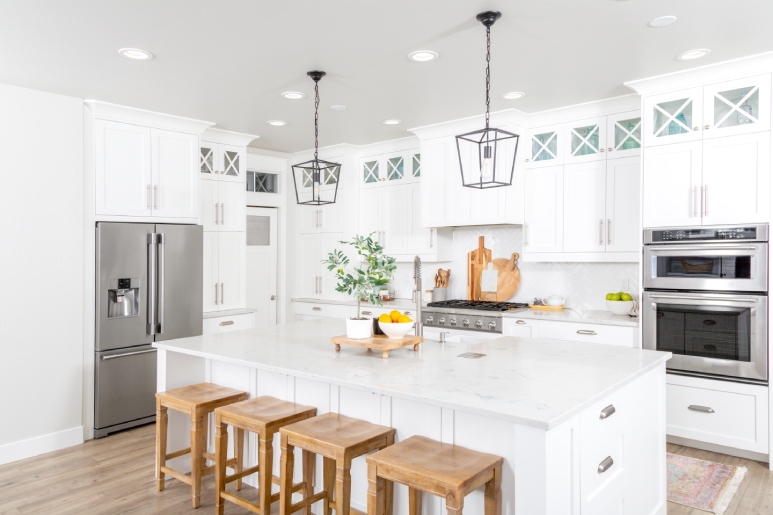
Factors To Consider Before Building a Kitchen Island
Kitchen islands are sought-after additions that can transform your space both functionally and aesthetically. They provide additional workspace, storage, and a social hub for family and friends. Before you start building a kitchen island, it’s essential to consider several critical factors to ensure your new addition meets your needs and enhances your home.
Size and Shape
The size and shape of your kitchen island will largely depend on the layout and dimensions of your kitchen. Ensure that its height and positioning allow for comfortable movement and appliance access.
Rectangular kitchen islands are a classic choice that is ideal for compact kitchens. An L-shaped or U-shaped island can provide additional countertop space and storage options for larger kitchens. It’s essential to choose an island size and shape that complements your kitchen’s layout without overwhelming it.
Material
Choosing the right materials for your kitchen island is crucial for durability and complementing your kitchen’s current design. Popular options for countertops include granite, quartz, and butcher block. Each countertop type has its pros and cons, so consider your cooking habits and maintenance preferences. Additionally, select sturdy base and cabinet materials that match your kitchen’s overall style and color scheme.
Function
Before building your kitchen island, think about how you plan to use it. Will you mainly use it for food preparation, dining, or storage? If you’re an avid cook, consider incorporating a sink, stovetop, or additional electrical outlets for appliances. Those who need extra storage should opt for an island with ample cabinetry or open shelving.
If you plan to use the island as a dining area, ensure there’s enough overhang for seating. Understanding the primary function of your island will help guide your design choices and make the space more useful.
Installation
Proper installation is key to ensuring your kitchen island is functional and safe. Depending on your skill level and the complexity of the island, you might need to hire a professional contractor, especially for plumbing or electrical work.
Be sure the floor can support the island’s weight, and double-check all measurements before starting construction. Consider using floating countertop supports for added stability and to prevent sagging. Proper installation will enhance the island’s practicality and ensure it stands the test of time.
Building a kitchen island is a significant investment that can dramatically improve your kitchen’s appeal. With these factors in mind, you can design an island that perfectly suits your needs and enhances your home. Right On Bracket’s selection of countertop brackets are perfect for island installations and home remodels for reliable support. Don’t hesitate to contact our team to discover the best brackets for your next project.


